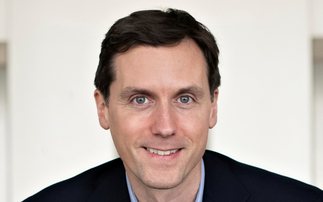Key points
At a glance
- All expect a relatively low impact on opt-outs/cessations after the AE hike
- But the industry must not be complacent, and lower earners are more likely to opt-out
- Effective communication and engagement strategies are essential from both schemes and employers
As AE contribution rates rise to a minimum of 8% in just a few days time, Kim Kaveh speaks to four master trusts about their preparations for a potential change in member behaviour.
This year got off to a positive start in the world of defined contribution (DC) pensions, as the government announced a 10 million member milestone for auto-enrolment (AE) since the regime began in 2012.
While much of the heavy lifting for AE ended following the conclusion of staging in February last year, there is still one timetabled change left - the final planned increase in minimum contributions.
Last year saw the first rate hike, from a total minimum of 3% with 2% employee contributions, to 5% with 3% employee contributions. On 6 April this will rise to a total minimum of 8%, with 5% minimum employee contributions.
Indeed, schemes have been preparing for the rise by putting communication strategies in place to ensure members are informed. But the rate rise also poses an important question - should schemes be concerned about a surge in opt-outs/cessation rates?
Opt-outs
The short answer is no. NEST, Now Pensions, The People's Pension and Smart Pension commentators tell PP they have seen nothing to suggest there will be a significant increase in these.
As NEST director of strategy Zoe Alexander points out: "Research about how people are behaving in relation to saving tells us that things might go a similar way this time as they did last time. So there is likely to be relatively little impact."
According to data from The Pensions Regulator and the Pensions and Lifetime Savings Association released last October, when contributions went up last year, cessation rates were at just 1.8% for micro, 1.7% for small, and 0.9% for medium employers.
Alexander continues: "We've also got the benefit that the national minimum wage and personal tax allowance is going up."
In April, the amount employees earn before they have to pay tax will increase from £11,850 to £12,500. Meanwhile the national minimum wage will go up from £7.83 to £8.21 for those over the age of 25. According to Now Pensions analysis unveiled to PP, income tax personal allowance increases will put another £130 per annum (p/a) into pay packets.
For someone on the 2019/20 national living wage - a full time salary of £17,000 - the increase in the hourly rate will put another £537 p/a into their pay packet, while their extra pension contributions will reduce take-home pay by only £175 p/a.
However, Smart Pension director of policy and communications Darren Philp says while he is optimistic there will not be a surge in opt-outs/cessations, "we can't be complacent on this because it is a bigger increase this time".
He adds: "If there is a surge, there is only so much we can do in the short term. I think it's about monitoring and feeding back to the regulator and the Department for Work and Pensions on what's actually going on."
Meanwhile, The People's Pension director of policy and external affairs Gregg McClymont notes: "Until the increases are in place and have been in place for some time, it will be hard to judge the behavioural responses."
But one group in particular are more likely to opt-out or stop paying into their pension - lower earners.
Lower earners
McClymont says it is unclear whether this will happen. "I would say for the long term we need to have contributions from the first pound of earnings, and bring those over the age of 18 into AE.
"I think bringing those advancements into AE are the most likely to take place when wages are rising above inflation."
As the government confirmed in its AE review at the end of 2017, it intends to change the framework for AE so that pension contributions are calculated from the first pound earned, and lower the age criteria from 22 to 18, but not until the mid-2020s. Pensions minister Guy Opperman reiterated this in February, when the government rejected calls to speed up changes to AE despite increasing pressure to boost contribution rates and pension pots.
Current rules mean employees must be earning at least £10,000 per year to qualify for AE, although the lower level for qualifying earnings is £6,032 (2018/19), which is moving up to £6,136 (2019/20) in April. Therefore, for members earning around the earnings trigger, the majority of their pension is not technically contributed.
As Philp explains, for someone who is right at the top of the band - which will be £50,000 from April (2019/20) - "the highest the contribution rate ever really gets to be is something like 6.9%, and these levels are actually a lot lower as a percentage of total pay for people on lower incomes".
Nonetheless, the government needs to think carefully about the level of contributions it sets as it has to be at a level that is going to be palatable to most people.
Alexander agrees, and adds: "There may be a tipping point when you start pushing for about 10% where people do opt out and so I think we just need to approach it very carefully. But having said that, overall, 8% probably isn't going to be enough."
There seems to be a compelling argument on both sides. On one hand, lower earners could struggle to afford to pay too much out of their salary into their pension. But at what cost? There is also a danger that people contributing at the minimum - especially those that can afford to pay more - will not be able to enjoy a healthy retirement.
Therefore, engagement and effective communication strategies have never been more important.
Communication
Commentators say they have focused on effectively informing employers of the rate rises, and ensuring they have the right tools to communicate to staff.
For example, Now Pensions director of policy Adrian Boulding notes the master trust has produced a range of communication material. "We've given them email templates and promotional posters that they could put up in the workplace, and suggested short messages they could include in their employees' payslips. Payslip messaging is great because a lot of people look at them."
But going forward, communications must be enhanced more generally to ensure members are engaged, informed, and make good decisions; it is essential to have the right strategy in place.
Philp notes that the first thing to do is to make sure as a scheme, you really understand your membership base and member demographic, and use that to form your strategy.
"You get some providers that would say, it's all about engagement, and others that argue it's all about the default [fund], but it's actually about both.
"What we're trying to do is sort of find that middle ground; pick up on the power of inertia and the power of default, but continue to have conversations with people so they make the most of their pension savings."
The way to do this is to give members a good interactive experience.
Philp continues: "That doesn't mean just sending them a boring two-page letter; it's about communicating in a way they want to be communicated with, on their terms rather than your terms. We have a lot of things coming in our digital pipeline."
For example, Smart Pension will roll out an online financial well-being application to help members make decisions about their money this year. It is also aiming to unveil member engagement innovation such as animated statements.
Furthermore, it is important to keep communications simple. As McClymont points out, "We don't expect a high level of pensions knowledge from our members, because why would we expect that?
"People are leading busy lives, and have other things to do than to become pension experts. So we really try to focus on trying to make our communications as easy to understand as possible while getting the message across."
However, it is not just down to the provider to engage and communicate with members. According to Punter Southall Aspire managing director of DC consulting Alan Morahan, employers could be "more proactive in their communications rather than relying on their pension providers to take the lead".
He says pension communications need to be fun, exciting, jargon-free and relevant to people at different stages of their life and careers.
"Messages about the benefits of saving now and what this could mean for the future should also be promoted. It could be as simple as communicating that a little extra saved each month now could make the difference between being able to afford a holiday or new car, or not, in retirement."
While it is clear that the April contribution rate hike will not be likely to impact opt-out/cessation rates, this does not necessarily mean schemes can relax and think ‘job done'. Members that can afford to contribute more into their pension should so they can enjoy a healthy retirement, and communication is key.









